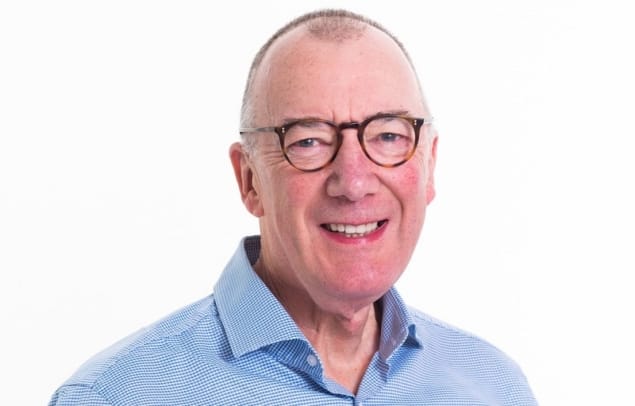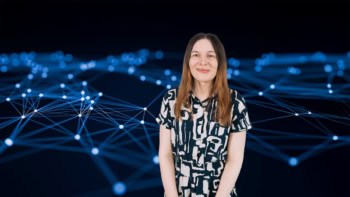After more than four decades at the forefront of scientific publishing, Steven Hall retires this week as managing director of IOP Publishing, which publishes Physics World. He talks to Matin Durrani about the challenges that learned-society publishers face

What have been the biggest changes to scientific publishing over the last decade during your time at IOP Publishing (IOPP)?
There have been two, and they are related: the growth of open access and the rise of pre-print servers. They are about making scientific research, in early form and in peer-reviewed form, accessible to as many people as possible who might benefit from it.
Did you expect all those changes to occur – or did any of them take you by surprise?
Looking back to 2010, open access was still far more an idea than a fact: in that year only about 2% of all journal articles were published on an open-access basis. But there was a growing demand for it from some countries and research funders, and it was very clear to me that we would need to satisfy that demand, where it existed, while maintaining other publishing models where it didn’t. There was already a preprint server in physics in arXiv, of course, but I didn’t foresee the rapid growth outside physics.
What challenges have learned-society publishers, like IOPP, faced during that time – and how well have they coped with them?
Learned-society publishers range from very large organizations like the American Chemical Society to very small publishers with a single small journal, and from the global to the very local, so I can’t speak for all of them. For many, however, it’s a question of scale. To cope with the challenge of supporting multiple business models and growing demands for digital services, we need to make the same kinds of investments in our technology, our processes and our staff as our much larger commercial rivals, but from a much smaller financial base. IOPP is fortunate in being larger than most learned-society publishers but even we can’t do everything we’d like to do as quickly as we’d wish. We compensate for that by focusing on the investments that will most benefit our customers and doing them well.
When it comes to open access, we’ve seen Wiley buy Hindawi this year for almost $300m; do you see further mergers or acquisitions of scientific publishers on the horizon?
Large publishers want to have as big a share of open-access publishing as they have had of subscription publishing and if they can do that quickly through acquisitions, they will. We will inevitably see more such acquisitions, though perhaps not all for such a price. We will also see further acquisitions by them of services to support researchers’ workflows.
What other big developments in open access do we need to watch out for?
Open access has been growing steadily for the last 10 years, but still not quickly enough for some funders. This year sees the introduction of the “rights retention strategy” by the group of funders known as Coalition S and it is also likely to be an element of the new UK Research and Innovation (UKRI) open-access policy due to be announced in April; UKRI is itself a member of Coalition S.
“Rights retention” essentially means that funders will require the accepted manuscript version of an article – that is after peer review and with the journal’s name attached but before copyediting and typesetting – to be made freely available immediately on publication under a licence that allows anyone to reuse it for any purpose.
This has two downsides. It undermines the subscription publishing model, as it places no value on a publisher’s development of journals and management of peer review, which in IOPP’s case represent around half of our costs. It also undermines the “gold” open-access model as it removes any incentive for an author to pay for gold open-access publication. It’s a disastrous policy that will cause enormous problems for authors as many journals will not accept submissions under these terms.
Last year, 33% of all articles appearing in journals that IOPP manages editorially were published on a gold open-access basis. We have made great strides forward in the last 10 years, especially when one considers that many parts of the world, including some of those with the largest research outputs, don’t support open-access publication. This policy risks damaging that growth, rather than enhancing it.
How can learned-society publishers thrive and stay relevant to the communities they serve?
They need to make their services to their communities more relevant and valuable than those offered by larger multidisciplinary publishers. A great example of that at IOPP is the launch last year of our programme of peer-review training and certification designed specifically for the physical sciences. It will be further expanded in 2021. As for managing the balance between open-access and subscription journals, we do that to some extent through our “transformative agreements”, which combine access to subscription journals with the ability for an institution’s researchers to publish in our journals on an open-access basis at no cost to them. We now have many of these agreements in place across Europe, including with close to 60 UK universities.
What long-term impact do you think the pandemic will have on scientists and scientific publishing?
It’s probably a little early to say, and it’s quite possible that it will have different impacts in different parts of the world, depending on how well countries have responded to the pandemic. It’s certainly shown the value of investment in scientific research, so we might hope that governments will heed that lesson. It’s also shown the continuing importance of peer review. The management of peer review is arguably the single biggest contribution of publishers to scholarly communications and it’s often ignored just how well we do it at scale; and Coalition S ignores that it has substantial costs.
What about Brexit: will it affect IOP Publishing?
Brexit will have little direct impact on IOPP as our business is now largely digital and there are no tariffs on digital publications. It will give us some extra costs in managing VAT but we will absorb those. Its greatest impact is more likely to be indirect, in how it affects funding for UK research and the ability of UK researchers to collaborate with their European peers.
What was your biggest achievement in your role as managing director of IOP Publishing?
Any leader of an organization should aim to leave it in a better state than he or she found it. I’m leaving IOPP in a very healthy state, with a very strong leadership team and an engaged and committed staff, with the right publishing strategies in place. I believe it’s as well positioned as it could be to meet the challenges of the next 10 years.

Boosting diversity in open access
Any regrets or things you might have done differently?
This is my chance to say “Regrets, I’ve had a few, but then again too few to mention”; Physics World readers will at least be spared hearing me sing it. Of course there are things I would have done differently – hindsight’s a wonderful thing – but generally I think we have made the right decisions over the last 10 years.
What are your plans after leaving IOPP – do you expect to stay involved in the publishing industry to any extent?
After more than 40 years in academic publishing, which I have enjoyed enormously, I can’t just give it all up. I am a non-executive director on the board of Bloomsbury Publishing, publisher of Harry Potter (and I like to think of his invisibility cloak as a tenuous link to physics) and with a significant academic publishing division. Besides this, I will look for other opportunities to share what I have learned, and to help avoid the mistakes I have made, at a non-executive level.
Any words of advice for your successor Antonia Seymour and her staff at IOPP?
I’m stepping down partly because after nearly 11 years I believe it’s time for some fresh thinking. So I will forbear offering advice unless she requests it, in which case I’ll be very pleased to give it.



